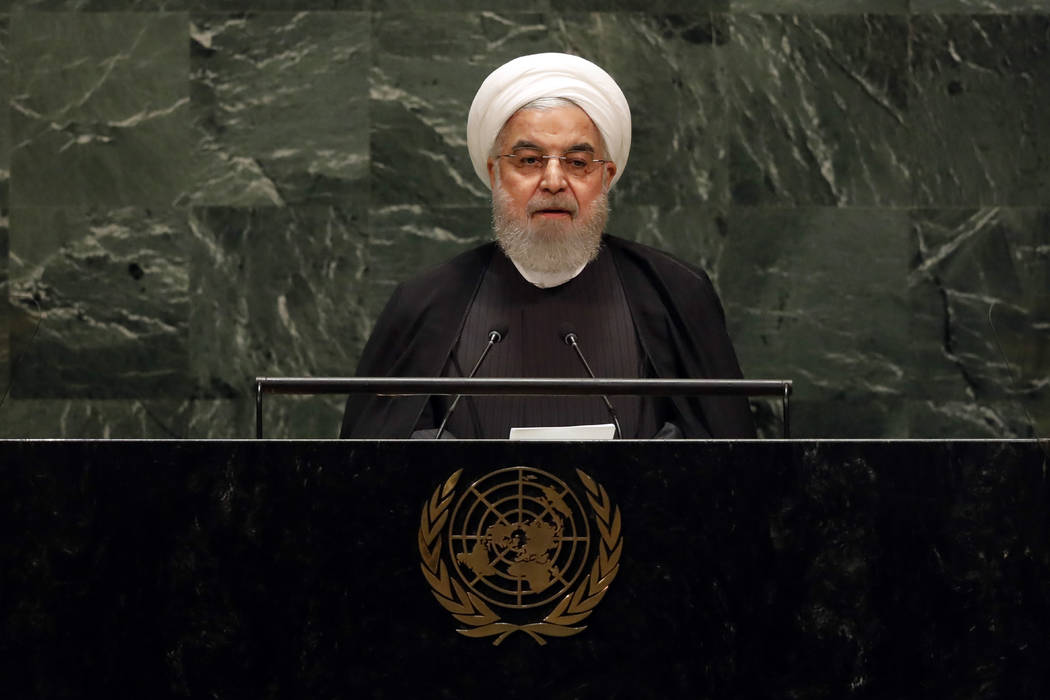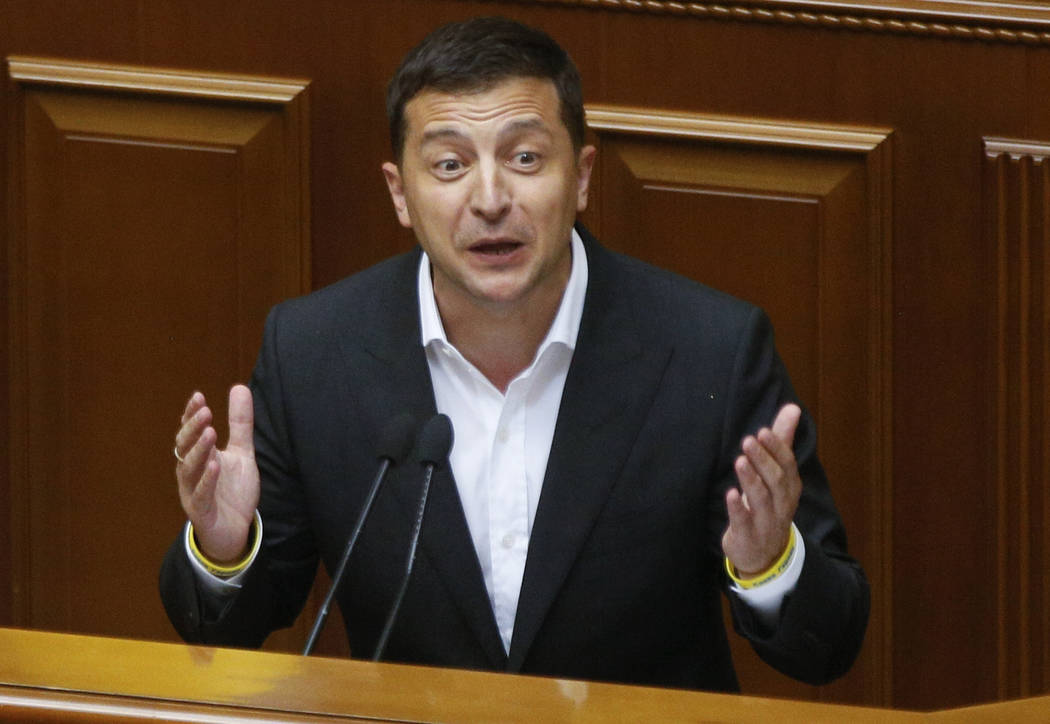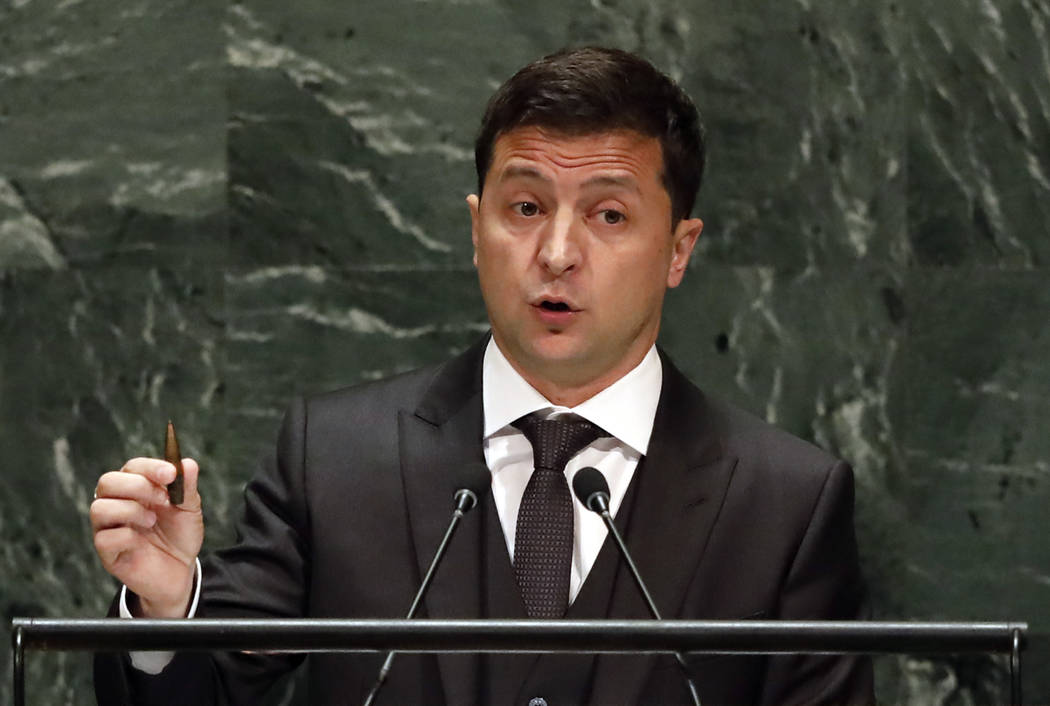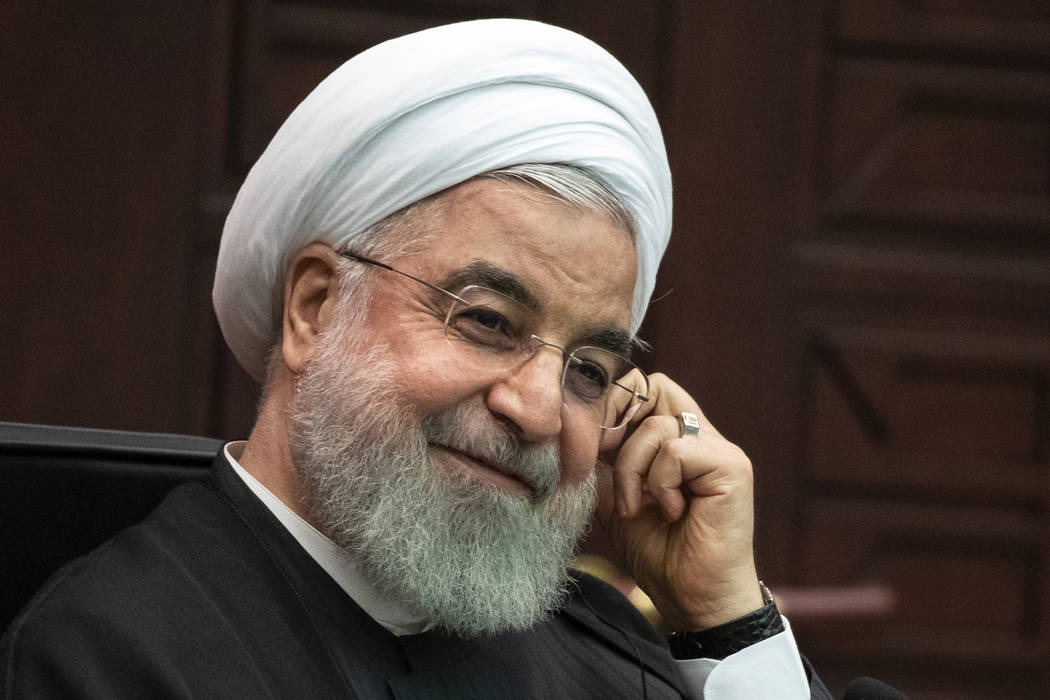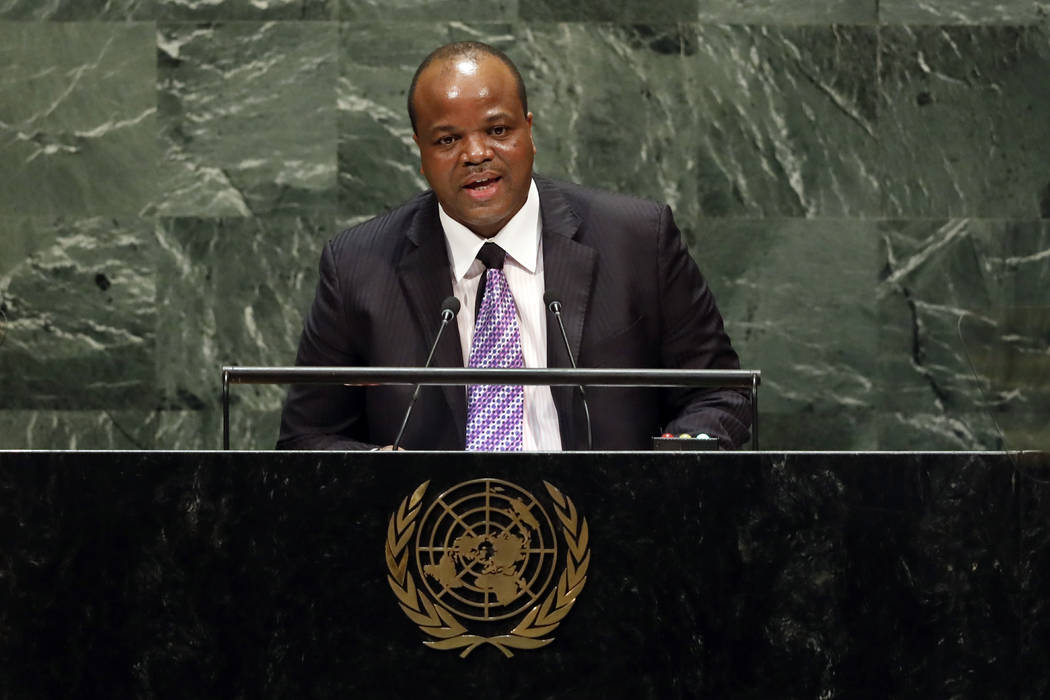Iran president accuses US of ‘economic terrorism’
UNITED NATIONS — Iranian President Hassan Rouhani is accusing the United States of “merciless economic terrorism” and “international piracy.”
Tensions are running particularly high between Iran and the United States since President Donald Trump’s decision last year to withdraw the U.S. from Iran’s nuclear agreement with world powers. Trump has since re-imposed and expanded sanctions on Iran, targeting its oil exports and crippling its economy.
Rouhani told the United Nations General Assembly gathering Wednesday that Iran would not negotiate on the nuclear issue as long as sanctions remain in place.
He said Iran has “resisted the most merciless economic terrorism.”
5 powers on Iran nuclear deal
Ministers from the five powers that support the 2015 Iran nuclear agreement and the Iranian government say they are striving to preserve it — and have underlined the importance of all sides implementing the deal.
The ministers said the agreement remains a key element “of global nuclear non-proliferation.”
European Union foreign policy chief Federica Mogherini read the brief statement on behalf of the ministers from Russia, China, Britain France, Germany and Iran after they held a closed-door meeting Wednesday morning.
Asked whether the agreement can be preserved, Mogherini said, “I won’t hide it that it’s increasingly difficult to do that, and we discussed today that.”
Mogherini said she believes Iran’s actions to break the deal’s nuclear-related limits “are reversible.” Iran is seeking to pressure Europe to offer it a way to sell its crude oil despite U.S. sanctions.
Appeal for refugees
Lebanese President Michel Aoun is appealing to world leaders to work on the safe return of refugees to Syria.
He says the presence of hundreds of thousands of refugees in tiny Lebanon has exacerbated the country’s worsening economic crisis. He says their safe return is a joint international responsibility that should be dealt with urgently.
He added in his speech before the U.N. General Assembly that more than 250,000 refugees have returned to Syria from Lebanon “and there has been no information about anyone being persecuted or mistreated.”
He says Lebanon will continue to encourage the “voluntary” return of refugees in coordination with the Syrian government.
Iraq feels squeeze
Iraqi President Barham Saleh says he will not let his country become a battlefield for other countries’ conflicts to play out.
Iraq is squeezed between the two powerful rivals in the region, Saudi Arabia and Iran.
Some have questioned whether attacks earlier this month on Saudi Arabian oil installations could have been launched from Iraq. Iraq has denied that.
Saleh told the United Nations General Assembly gathering Wednesday: “Iraq will not be a launching pad for aggression against any of our neighboring countries.”
He called the attacks in Saudi Arabia a dangerous development.
Saleh bemoaned that Iraq has long been unstable but struck a positive note, saying his country was emerging from years of conflict and looking toward economic development.
Ukraine leader avoids controversy
Ukrainian President Volodymyr Zelenskiy made no mention of the American scandal swirling around him in his first-ever address before the U.N. General Assembly, choosing instead to focus on the horrors of war and his country’s ongoing conflict with Russia.
His speech Wednesday came less than day after a formal U.S. House impeachment inquiry into President Donald Trump was launched, a development that was sparked partly by a July 25 phone call between Trump and Zelenskiy.
At issue is whether Trump abused his presidential powers and sought help from Ukraine to undermine Democratic foe Joe Biden and help his own re-election.
In the days before the call, Trump ordered advisers to freeze $400 million in military aid for Ukraine, prompting speculation that he was holding up the money as leverage for information on the Bidens.
Trump has denied that charge but acknowledged he blocked the funds.
Many of the world’s leaders have used their speeches so far to defend the multilateralism embodied by the United Nations.



